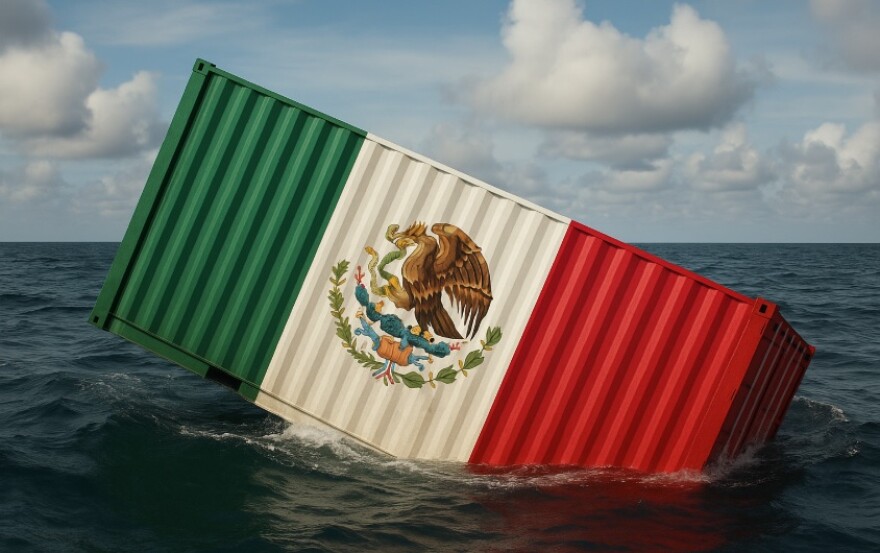This week the United States has imposed 25% tariffs on virtually all imports from Mexico. On Friday, August 1, the tariffs on most imports with Mexico are due to rise to 30%.
Commerce Secretary Howard Lutnick has emphasized that this deadline is firm and not subject to postponement, which is what happened during past tariff showdowns with Mexico. Officials say negotiations are ongoing, but no final deal has yet been announced between Washington and Mexico.
President Donald Trump may be looking for a deal similar to the one he struck this week with the European Union. The tariff-and-spending accord announced Sunday averts a damaging trade war between two of the world’s largest economies, but it is lopsided in favor of Trump’s protectionist policies.
Brussels accepted bitter concessions in hopes of stabilizing a key economic relationship and one also critical for its security interests.
The agreement allows Washington to raise tariffs 15% on E.U. goods while the Europeans promise to buy more U.S. products.
The tariffs, or import taxes, are paid by Americans who buy European products and could raise prices for U.S. consumers and reduce profits for European companies and their partners who import goods into the country.
Trump introduced the North American tariffs using the International Emergency Economic Powers Act (IEEPA), claiming that he has the authority to target Mexico and Canada because of fentanyl smuggling and border security. Simultaneously, goods compliant with USMCA remain indefinitely exempt, covering roughly half of Mexico’s exports.
If the tariffs remain in place the impacts are poised to ripple across both economies. Mexican exporters, especially in agriculture, are being hit hard. For example, tomato growers are already facing an effective 17% protective tariff. This is prompting contract renegotiations, lost revenue and higher prices at the grocery store. Analysts forecast a 5% –10% drop in tomato export volumes and potential losses of up to 200,000 jobs in the sector.
U.S. consumers and firms may bear the brunt of these policies. Imported goods across sectors from produce to electronics to clothing face higher costs. This would be contributing to inflation. According to one analysis, U.S. households could see average tariff-induced cost increases of $1,300 in 2025 and $1,683 in 2026.
Economists warn that sustained tariffs and retaliation could reduce GDP across all three NAFTA economies. Mexican GDP may shrink by up to 4%, while even the U.S. could experience modest slowdowns and elevated inflation .
Mexico has vowed to respond with retaliatory tariffs—potentially between 5% and 20%—on key U.S. exports such as pork, cheese, steel, and aluminum, while sparing auto parts initially.
This reciprocal action mirrors Canada’s strategy and may further intensify trade frictions.
Guest:
Ernie Tedeschi is the Director of Economics at the Budget Lab at Yale. Until March 2024, he was the Chief Economist at the White House Council of Economic Advisers. Prior to CEA, he was Managing Director and Head of Fiscal Analysis at Evercore ISI, a macro advisory firm. He was also previously an economist at the U.S. Department of the Treasury. Ernie completed his undergraduate studies at Stanford University and graduate work at the University of California at Berkeley.
The Source" is a live call-in program airing Mondays through Thursdays from 12-1 p.m. Leave a message before the program at (210) 615-8982. During the live show, call 833-877-8255, email thesource@tpr.org.
This episode will be recorded on Tuesday , July 29, 2025.



